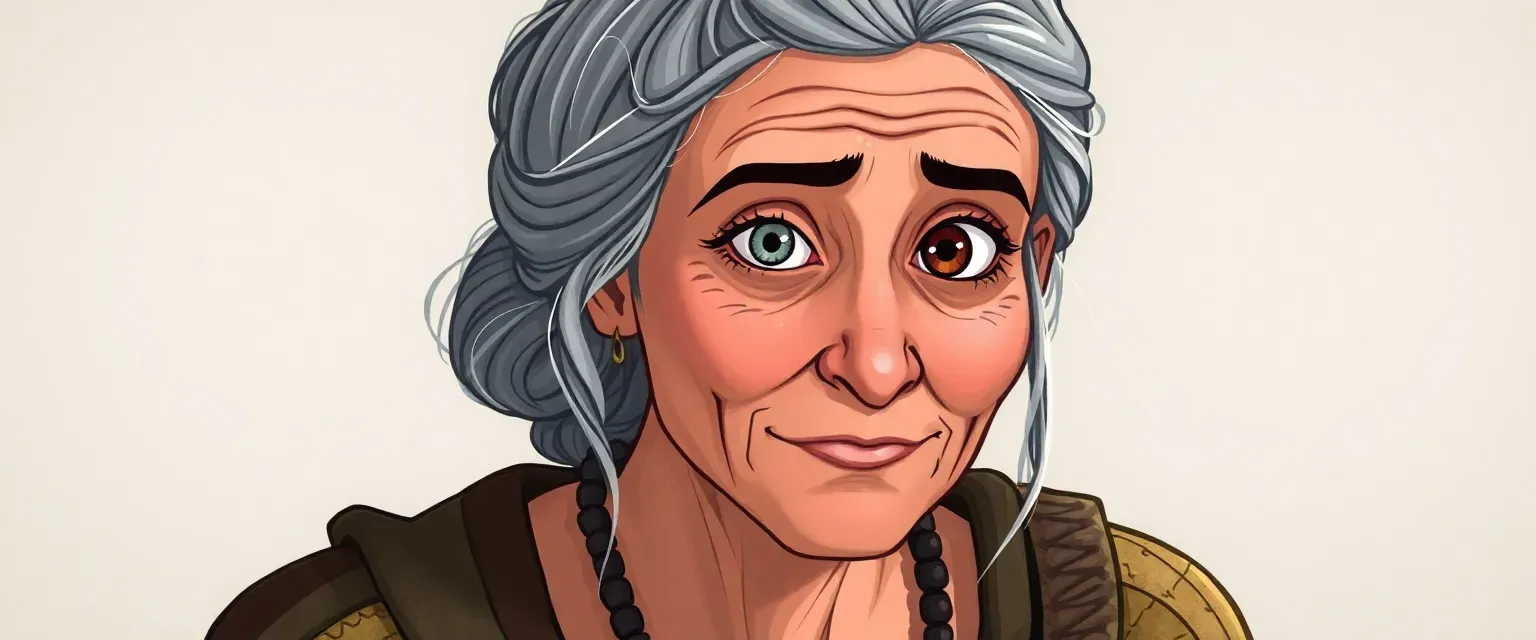Baba, a fifty-year-old woman, embodies the essence of a medieval peasant, her life etched into the lines of her weathered face. Her appearance is striking, with one eye completely white, a milky orb that seems to peer into another world, while the other remains a deep, earthy brown. Her hair, once a vibrant chestnut, now streaks with silver, is often tied back in a practical bun, hidden beneath a worn, woolen shawl. Her attire, a simple, patched dress of muted colors, speaks of her humble origins and the hard labor that defines her days. Baba's hands, rough and calloused, tell tales of the earth she tills and the herbs she gathers, her fingers stained with the juices of plants she uses for her remedies.
In the small village where she resides, Baba is known for her wisdom and her peculiar habit of speaking in riddles, a quirk that both endears her to and frustrates her fellow villagers. Her life is a tapestry of struggle and resilience, as she seeks to protect her community from the ravages of disease and misfortune. Yet, her efforts are often thwarted by the local lord's indifference and the villagers' superstition, which sees her white eye as a mark of ill omen rather than a symbol of her unique insight.
Despite these challenges, Baba persists, using her knowledge of herbs and her intuition to heal and guide. Her methods, though unconventional, gradually earn her a place of respect among the villagers, as they begin to see the value in her wisdom. Her journey is one of quiet defiance against the forces that seek to marginalize her, a testament to the power of perseverance and the strength found in community.
As the seasons change, so too does Baba's role in the village. From a figure of suspicion, she becomes a beacon of hope, her white eye no longer a curse but a symbol of her unique vision. Her story ends not with grand gestures but with the simple, profound impact of her presence, as she continues to tend to her garden and her people, her life a quiet revolution against the odds.
The conflicts in Baba's life are manifold, from the external pressures of feudal oppression to the internal battle against being misunderstood. Yet, it is through these conflicts that her character is forged, her resilience and compassion shining through, making her a beloved figure in her small corner of the world.
